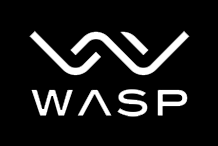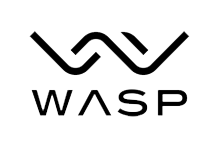
Do you have a problem understanding Google vs. Facebook advertising? Here’s an analogy that can help you better comprehend the two diverse platforms –
Picture this: You’re at an airport waiting to board your next flight but there is a delay. There is a public announcement system which is announcing updates every few minutes. There is also an information kiosk that you can approach to find out the details. You decide to go to the information kiosk and inquire about the hold up.
The staff member informs you of the updated departure details and also tells you that there is a 30% off on hotels in the city that you’ll be landing in. You thank the staff member and tell them you’ll come back to find out more info about the deal.
While you are waiting in the lounge, there are several announcements being made about various flights. You listen to some of them and ignore a few. There is an announcement being made about your flight and its delayed status. You listen to it carefully. Right after that, there is an announcement sharing the 30% off deal info.
Now, the information kiosk is Google Search while the public announcement system is Facebook.
When you need information about something, you go to Google Search (in this case, the information kiosk) and inquire. And based on your inquiries, different advertisements are served to you, either on the same page or on other sites that you browse. Facebook (in this case, the public announcement system) is constantly serving various advertisements and not all of them maybe relevant to you. You engage only when you find a particular ad is relevant to you.
This analogy can help you understand a lot of things about Google and Facebook, and how you should approach advertising on these platforms. Here are a few salient points that can help you transform your advertising –
- Intent: When you serve an ad on Google, you know your audience has already searched for something related to your brand. So they are more likely to convert. But you need to understand their search intent. A user who searches for ‘web development’ might be seeking information on various topics about the keyword – like ‘how to approach web development’ or ‘why web development is important’. But the intent of a user who searches for ‘web development company in Florida’ is clear. Similarly, audiences on Facebook have several intentions for accessing their news feed – somebody wants to check updates, somebody wants entertainment while someone just wants to see what their friends are doing. This is why you need to design your ads differently for different audience groups in order to grab their attention. Understanding your audience’s intent helps you optimize your ads more effectively on both the platforms.
- Outreach: Facebook is an active advertising platform while Google Search is passive. As an advertiser on Google Search, you set your campaign based on various keywords and you have to wait until the user searches for that particular keyword in order for your ad to be served. Advertising on Facebook is different. You are constantly reaching out to audiences based on their interests, previous activity and engagement history. Understanding this difference can help you formulate the right combination of Facebook ads and Google Search ads to fulfill your brand’s objective.
- Audience Size: While smaller audience sizes work on Google, Facebook advertising needs bigger audiences. Since the intent of audiences on Google is more inclined towards your ad objectives, it is easier and more beneficial to reach out to smaller groups. Whereas on Facebook, you need a bigger audience because only a few percentage of them will respond to them. It’s like the public announcement system at the airport where only a few people will pay attention to the ad. That’s why the bigger the audience size on Facebook, the better.
For certain brands, Facebook works best while for some others, Google Search is better. For most of your digital marketing efforts, a combination of both is recommended for optimum results. This combination can be arrived based on your industry type, audience size and A/B testing results.
If you have difficulty deciding what will work for you, pick up the phone and contact us for a free consultation now!

